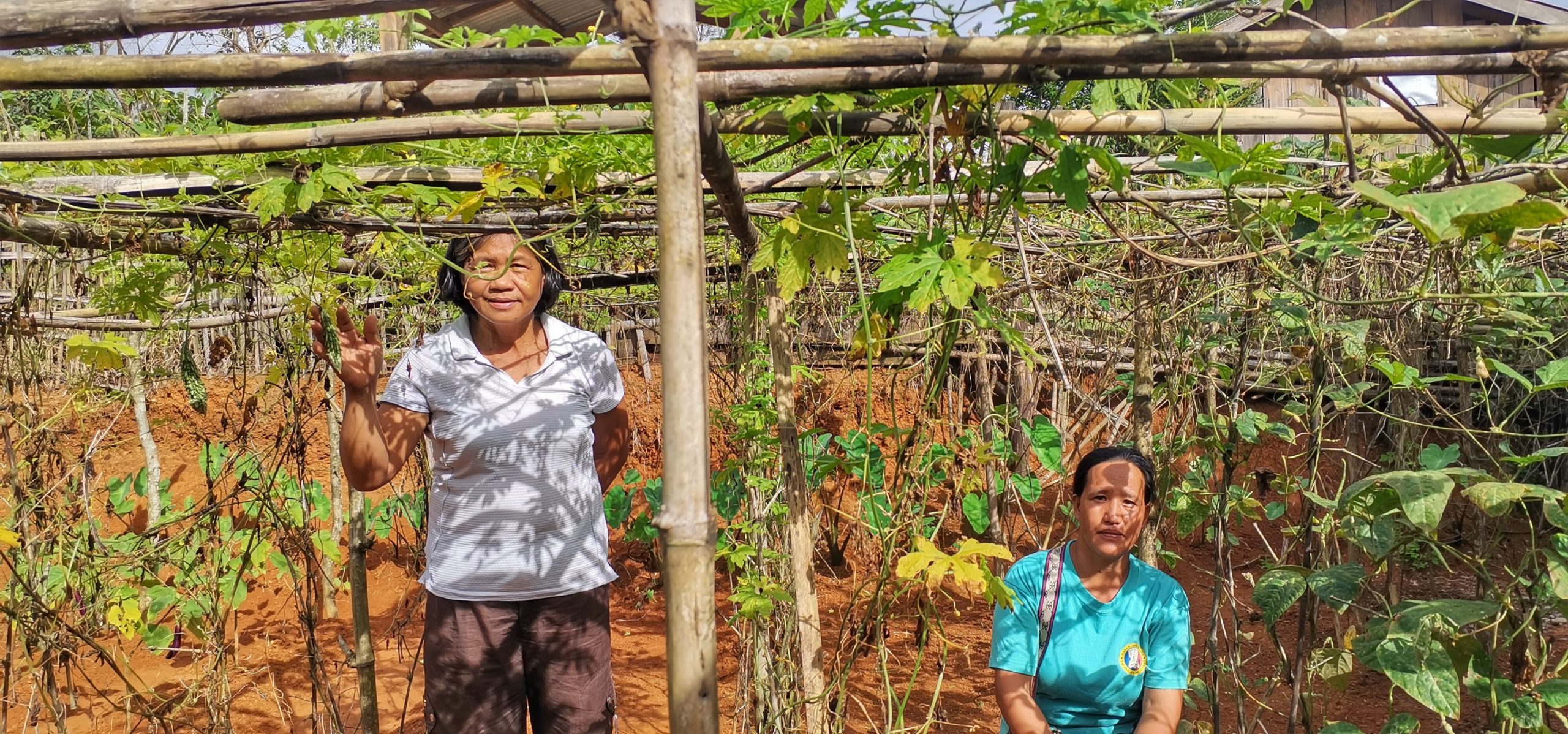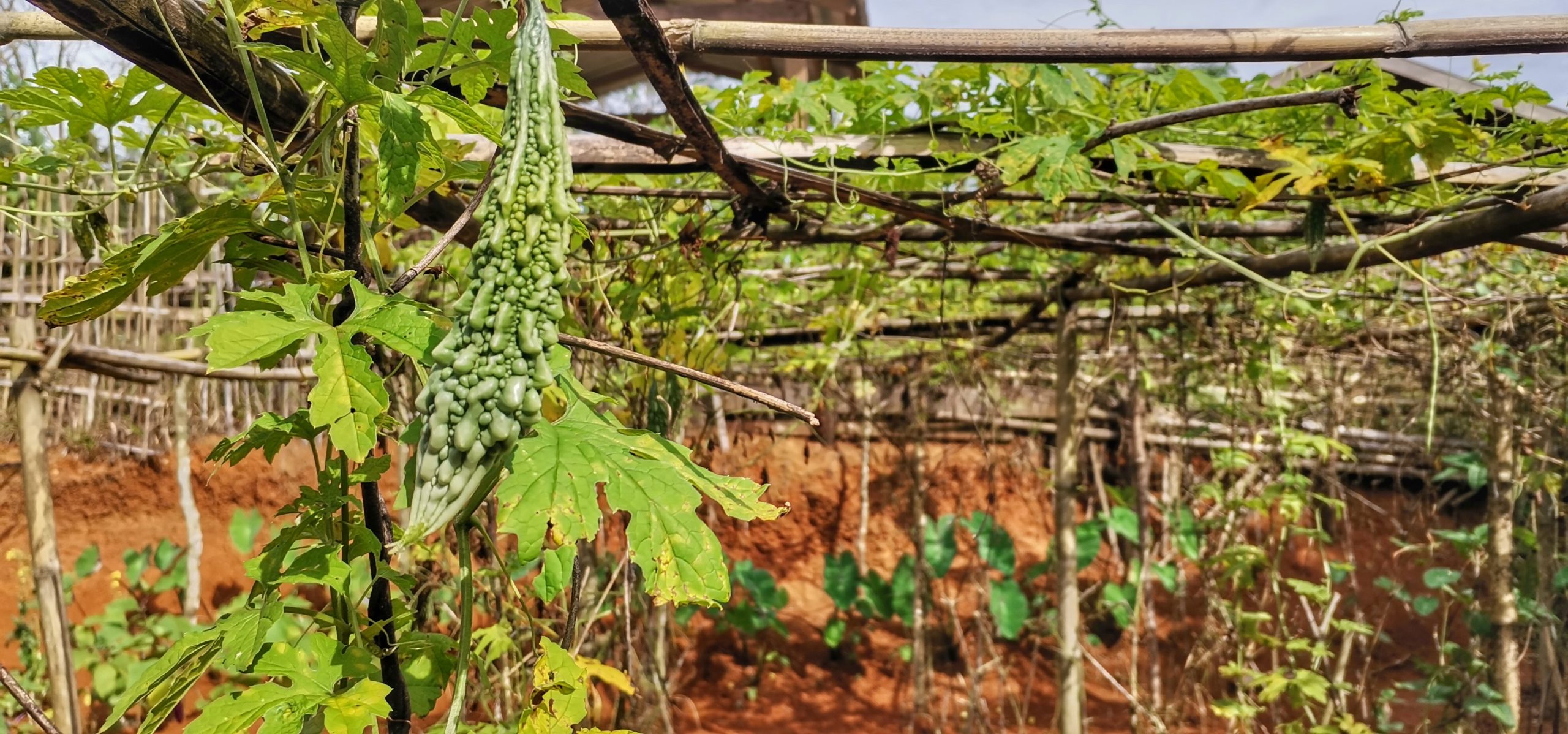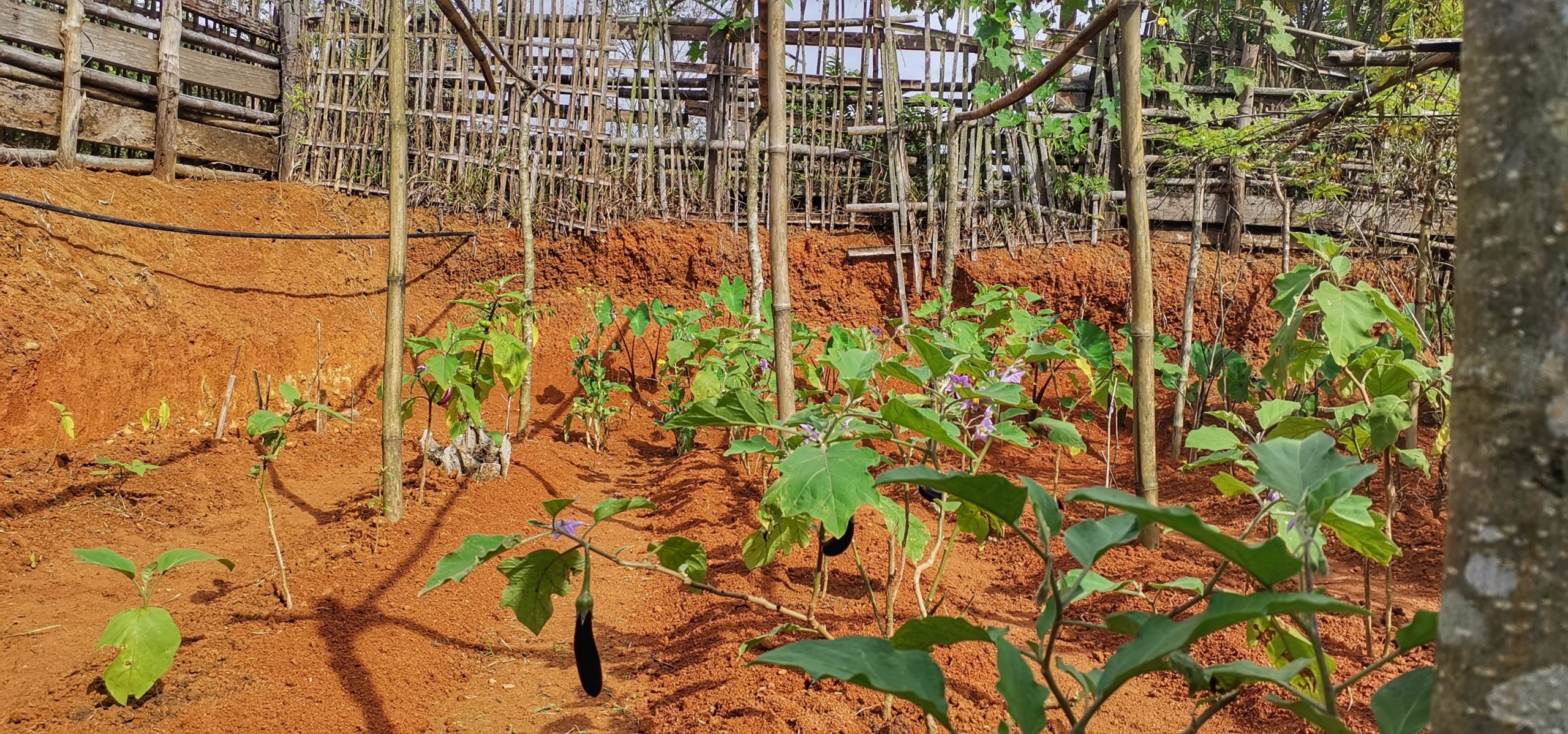APAYAO, December 7, 2022 – With the challenge of having low supply of vegetables in their community, 15 Indigenous People (IP) from the Itawes, Isnag, Kankana-ey, and Tingguian communities came together to strengthen vegetable crops production and ease access to said food commodities for their entire community through the Department of Agriculture – Special Area for Agricultural Development (DA-SAAD) Program.
The four (4) indigenous cultural communities nestled in the barangay are around 500 in population. Their situation in an ELCAC (End Local Communist Armed Conflict) area gravely affected their living conditions since their location is 20 kilometers (km) away from the town proper and there is almost no transportation available. Most of the time, they ask for ride accommodation from the soldiers passing through their area. Maintaining any form of livelihood due to their inaccessible location is a serious challenge to the community.
Brgy. Upper Atok, previously known as Coliman, is situated on the other side of the Apayao River. In 2015, residents of the barangay would cross through the river or hike through risky trails before reaching the town proper. The town proper is the only location where they can buy vegetables for their consumption. Currently, a fully constructed road is now available though there remains no vehicles available in their community.
“Nababa iti supply mi iti vegetable ditoy ta adayo iti ili ditoy barangay mi. Pasaray haan kami makarwar nga mapan dijay ili ta awan iti public transportation. By chance kami lang nukwa makarwar nu kasta adda ammo mi nga mabalin pakiluganan,” expressed Ms. Camilag.
(There is a low vegetable supply in our community due to the distance from the town proper. We don’t often travel outside the community because there is no single public transportation in our area. Whenever we travel outside the community, it’s only by chance when we know someone who has a motorcycle that we can ride on.)
The Atok, Bagutong, Upper Atok, Poblacion West, Poblacion East, and Balasi (ABUWEB) Farmers Association (FA) realized that the need to ensure access to food will be provided to their kabarangay despite peace and order crisis and isolation of the area is a primary concern. This led to their aspiration to become small-scale local suppliers of vegetables in the community.
The FA was registered under the Department of Labor and Employment (DOLE) on June 13, 2017. According to Ms. Hilda Camilag, member of the group, tiger grass and banana production was their main source of income since they grow in abundance within their mountainous barangay. They earn Php 1,050.00 a day as farm laborers during cropping seasons, yet they perceive vegetables as a need for their home consumption.
In 2021, they became beneficiaries of the SAAD Program and received support for Vegetable Production Project worth Php 149,875.00. However, they only used their produce for home consumption. They till in a 100-square meter area in each of their backyards to cultivate the crops. Aside from vegetable seeds, they also received farm tools from the program.
Project results
One year after the project implementation, the group was able to produce vegetables such as pole sitao, bitter gourd, eggplant, red chili pepper, okra, squash, and tomato. Their main patrons are the community members.
“Agyaman kami iti SAAD Program ta naikkan kami iti vegetable seeds dituy barangay mi. Gapo kadaytoy nagbalin kami nga vegetable producer dituy barangay mi. Nagbalin kami nga independent bilang maysa nga community, kin naging aware kami alternative livelihood opportunities”, said Mr. Jason Rance.
(We are so grateful for the SAAD Program because we received vegetable seeds for our barangay. Because of this livelihood grant, we became vegetable producers in our barangay. We became more independent as a community, and became more aware of alternative livelihood opportunities.)
Table 1. ABUWEB Farmers Association’s Vegetable Sales

ABUWEB FA aims to boost their production through purchasing more vegetable seeds intended for propagation. Through that, the group will grow more crops so that they can sell more and help their community with food sustainability.
The group hopes to accommodate this demand by establishing a talipapa or a makeshift market in their community. This community-based enterprise will ensure sustainability of livelihood for the FA and food availability for the community. ###
Writer: Kathleen Faye B. Agonoy, DA-SAAD Apayao Information Officer




Comments (0)